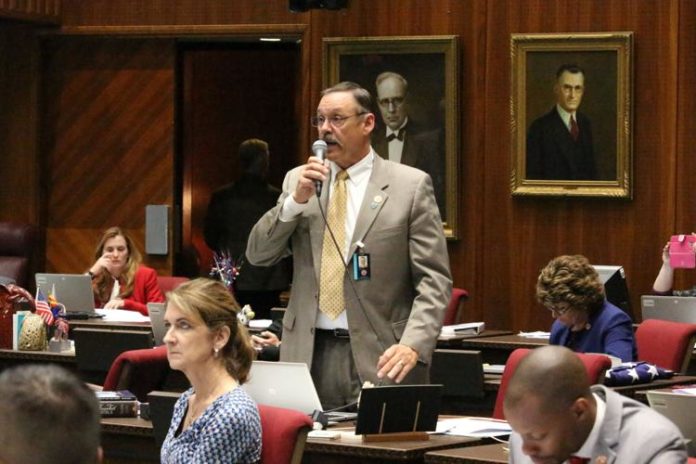Many Republicans still haven’t made up their minds about who they’re voting for in the Arizona statewide primary down-ballot races next month.
A recent OH Predictive Insights poll found that there are some competitive down-ballot races where undecided voters could make a huge difference in the final outcome.
Arizona state Rep. Mark Finchem, R-Oro Valley, leads in the Republican primary for attorney general. The Donald Trump-endorsed candidate had 14% support in the poll.
That’s more than twice the support of the runner-up in the poll. State Sen. Michelle Ugenti-Rita, R-Scottsdale, had 6% support, according to the poll. The other two candidates were polling in the low single digits. But 72% of likely Republican primary voters considered themselves undecided in the race.
The attorney general race is a similar story. The poll found six Republican candidates all have single-digit support. As for undecideds? They made up 67% of the electorate, according to the poll.
This poll had the Trump-endorsed Abe Hamadeh in the lead with 7% support. Andrew Gould and Rodney Glassman each had 6% support, according to the poll.
And while incumbent Republican treasurer Kimberly Yee holds a double-digit lead over her two primary opponents, she has support from just 19% of voters, according to the poll. The biggest constituency once again is the undecideds (71%).
Plus, in the Republican primary to be the next Superintendent of Public Instruction, 66% of people still haven’t made up their minds. Former Attorney General Tom Horne (18%) has the lead while the other two candidates in the race sit in the single digits.
“The governor and senate primary is taking up much of the oxygen (and airtime) away from these down-ticket races,” Mike Noble, OHPI chief of research, said in a news release. “With voters predominantly undecided in these races, their respective campaign efforts will be critical as they chase ballots, get out the vote, and spend their hard-earned campaign dollars leading up to Election Day.”
The poll sampled 515 Arizona voters and has a 4.3% margin of error.
Republished with the permission of The Center Square.















